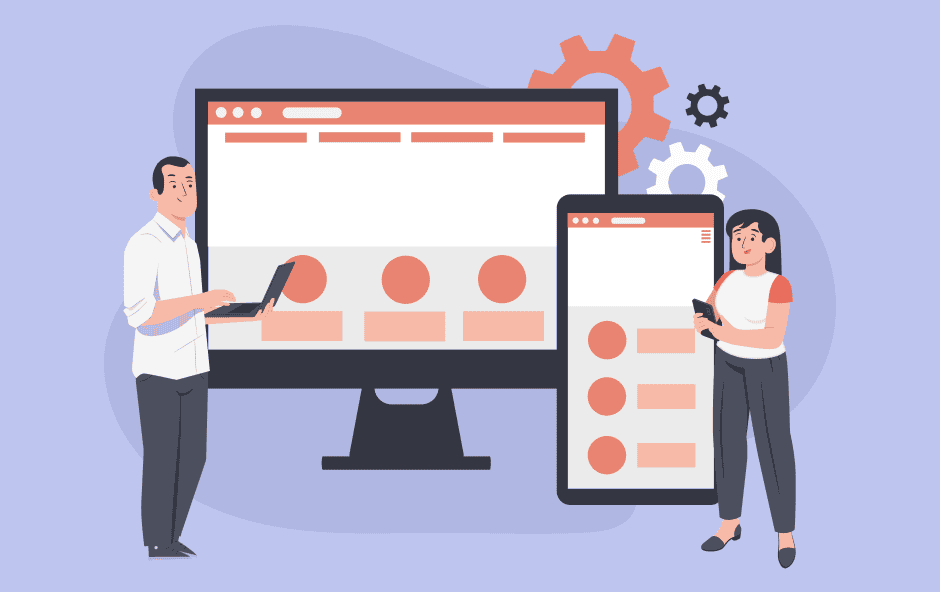How do you keep users engaged with your app? And how do you ensure they not only return, but also convert? In-app marketing offers the answer. By activating users at the right moment during their interaction with your app – through relevant notifications or recommendations – you stimulate repeat usage and conversions. It’s not a one-off campaign, but a thoughtful way to add value within the app itself.
Discover how smart in-app marketing can help you engage, activate, and convert your app users.
What is in-app marketing?
In-app marketing is the use of targeted communication within your own app, tailored to the behaviour and needs of your users. Think of notifications, banners, or interactive elements that appear at precisely the right moment in the user journey. For example, when completing a purchase, discovering new features, or encouraging next steps.
The strength of this approach lies in its ability to respond to real-time behaviour rather than external triggers. As users are already active in your app, relevant suggestions feel natural and contribute to a seamless, personalised experience. Instead of distraction, it leads to more engagement, more action, and greater loyalty.
In-app marketing is thus a vital part of a broader app marketing strategy, in which you leverage every touchpoint to attract, activate, and retain users.
Benefits of in-app marketing
An effective in-app marketing strategy not only improves the user experience but also delivers tangible results for your business. From conversions to retention – these are the benefits you can expect.
-
Higher conversion rates: by showing promotions or notifications at the right moment – for example, during the checkout process – you significantly increase the likelihood of purchase or action. This directly contributes to monetising your app.
-
More relevance through personalisation: by responding to behaviour and preferences, your communication feels personal, increasing the effectiveness of your message.
-
Better user experience: well-timed marketing expressions ensure that users are helped rather than interrupted.
-
Longer session duration and higher retention: valuable interactions keep users engaged and increase the likelihood of their return.
-
Insight and data-driven steering: thanks to analytics, you can see exactly which campaigns convert and continuously optimise performance.
These benefits make in-app marketing a powerful growth engine for apps looking to maximise user activation and conversion.
Popular techniques for in-app marketing
A strong in-app marketing strategy uses smart communication moments that enhance the user experience. Depending on your goal, you can use different techniques to inform, guide, or activate users.
In-app notifications
In-app notifications are alert icons that disappear after the screen is viewed. They are an effective way to capture users' attention and inform them about new features or changes within the app.
By strategically using in-app notifications, you can communicate important updates or promotions without disrupting the user experience. This helps users feel more connected to the app and encourages them to take action based on the received messages.
In-app messages
In-app messages are personalised messages sent to users. They are often used to share information that doesn’t fit in a short notification, such as a promotion, update, or call to action.
These messages usually appear in a dedicated message centre or inbox within the app, providing space for slightly longer communication while maintaining relevance.
Overlay messages
Overlay messages are full-screen notifications that inform users about significant changes or updates within the app. These appear on top of current content, ensuring that users do not miss the message.
The function of an overlay is to inform users about critical changes or new features, increasing engagement and keeping users informed about important updates. This is especially effective for time-sensitive or critical information.
Tooltips
Tooltips are small info windows that guide users in discovering new features within the app. These short, informative pop-ups appear when a user hovers over a certain element, providing direct help and explanation.
Using tooltips shortens the learning curve for new users and enhances the overall user experience.
Banners
Banners are visual elements placed in fixed positions in the app, such as the home screen or an overview screen. They stand out without blocking navigation.
In e-commerce apps, banners are often used to promote deals or new collections. In other types of apps, they are equally suitable for drawing attention to targeted marketing messages.
Common mistakes in in-app marketing
In-app marketing can be highly effective, but incorrect implementation can have the opposite effect. Here are the most common pitfalls to avoid:
-
Too many notifications at the wrong time: if notifications appear randomly or too frequently, it can cause irritation or disengagement. Timing is crucial – ensure the message makes sense in the user’s context.
-
Lack of personalisation: generic messages fall flat. If you don’t tailor communication to behaviour or preferences, it quickly becomes noise rather than relevance.
-
Insufficient attention to privacy: users are increasingly aware of how their data is used. Transparency and well-structured privacy flows are key to maintaining trust.
-
Overlooking technical limitations: not every message works the same across all devices or operating systems. Thorough testing prevents compatibility issues and bugs.
-
No performance tracking: launching campaigns without clear goals or analytics prevents optimisation. Use data to measure success and adjust as needed.
How to integrate in-app marketing into your app?
A successful in-app marketing strategy begins during development – not after launch. By incorporating marketing features early on, you and your app developers ensure a seamless user experience with maximum impact. Link campaigns to clear objectives and use analytics to test what works. This enables targeted adjustments and ensures your app grows alongside its users. Proper integration makes in-app marketing a natural extension of your app – laying the foundation for sustainable growth and impact.
Want to get more out of your app with in-app marketing?
In-app marketing is the key to activating users at the right moment and in the right context. Through smart notifications, personalised content, and real-time interaction, you increase engagement and drive conversions.
Successful in-app marketing requires a thoughtful strategy, technical integration, and ongoing optimisation. At DTT, we combine experience in app development with strong insight into user behaviour and conversion.
Want to maximise your app’s potential with a strategic marketing approach? Contact DTT and discover how we can grow your app.









